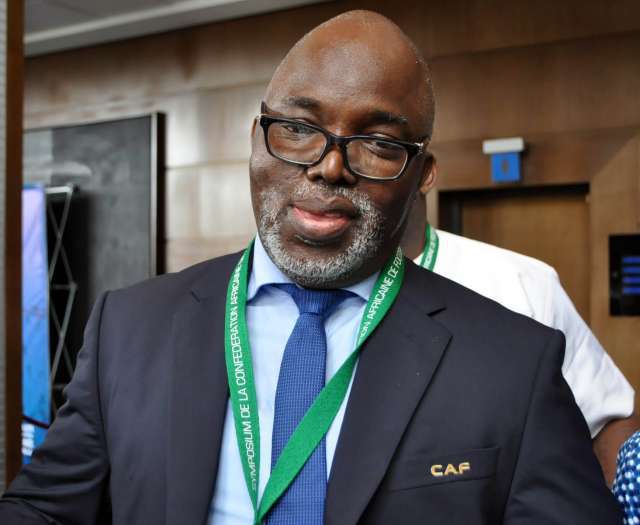For some weeks now, the dust over the power tussle in the Nigeria Football Federation has been unsettled as a ruling from a civil court was given preference over FIFA statutory regulation – one that has definitely not gone down well with the world’s football governing body. At the frontline of the struggle is Chris Giwa who is having the backing of the Minister of Youth and Sports, Solomon Dalung – albeit under the guise of respecting court order. With the forceful removal of Amaju Pinnick – who is recognized as NFF president by the Federation of International Football Association – from office, Nigeria football administration has once again been brought under the scrutiny of the disciplinary committee of FIFA, and as such, there have been concerns about an impending ban on Nigeria [as it relates to football].

Chris Giwa is one who is not a stranger to controversies. Back in 2014, he was elected president of the Nigeria Football Federation in an election that was not acknowledged by FIFA but has since been defiant in assuming the position on the basis of that result. In 2016, he was banned by the NFF for seeking redress at a civil court, and the ban was ultimately extended by the Confederation of African Football (CAF) and FIFA. So, the question goes that why should the Sports Minister be so much concern about having someone who is on a five-year ban at the helm of affairs? Well, the Minister will probably submit that he is acting in consonance with the orders of the Supreme Court and will not want to go to jail. But then how shall we lose consciousness of the fact the he (the Minister) is a friend to Chris Giwa and has not been in good terms with Amaju Pinnick? I would not know if Mr. Giwa really has any decorum in this respect considering that he is seeking to take charge of an office that is directly affiliated to a body that has frozen out [of football matters] prior to this moment. What sort of relationship is he hoping to enjoy with FIFA? And how will his administration drive the cause for credible development in the nation’s football with FIFA’s hammer hitting the head? It is quite clear to see Chris Giwa is fighting a lost cause – safe you wish to shame the truth.
The event (that is, the NFF crisis) has certainly shown the ugly side of some individuals as well as the judiciary system. There is no denying the fact that the Minister of Sports deserves some stick for the role he has played thus far but the judiciary cannot be left out of this mess either. Should the civil court not have known that the case involving football administration is not her responsibility? The case ought to have been referred to the Court of Arbitration for Sports in the first instance. Moreover, by hearing from one side and passing judgment [and ruling in its favor] thereby, the court showed biasness even as it did
not serve any paper on the Amaju Pinnick’s camp.
Again, it is really disappointing to see Chief Festus Adegboye Onigbinde being nonchalant about what the impending ban could spell for the nation’s football teams and players. It is hard to imagine that the Falconets could have their dream of playing at the U-20 world cup truncated should FIFA eventually ban Nigeria from football activities. Likewise, the Flying Eagles’ participation at the African U-20 Nations Cup, intercontinental club competitions for Nigerian clubs as well as the transfer of Nigerian players abroad will also be jeopardized. But all this seems not to matter an administrator in the caliber of Chief Onigbinde – not good enough, I must say. And while erstwhile Enugu state commissioner for sports, Barrister Ray Nnaji may not see FIFA banning Nigeria, it is important to remind ourselves that FIFA is not governed by Nigerian laws and will not watch things done in a way that contradicts the statutory order without taking punitive measures sooner or later.
It is just as simple as it is; if the Sports Minister along with Chris Giwa are not ready to abide by the rule as stipulated by the governing body [of football administration] then Nigeria definitely has no business competing among the comity of nations. It is however not right for a couple of individuals to ground football development in the country just because of their own self ambition. It is not possible for progress to be made in a state of illegality and/or disorderliness and the sooner the Barrister Dalung realizes this, the better for our football.